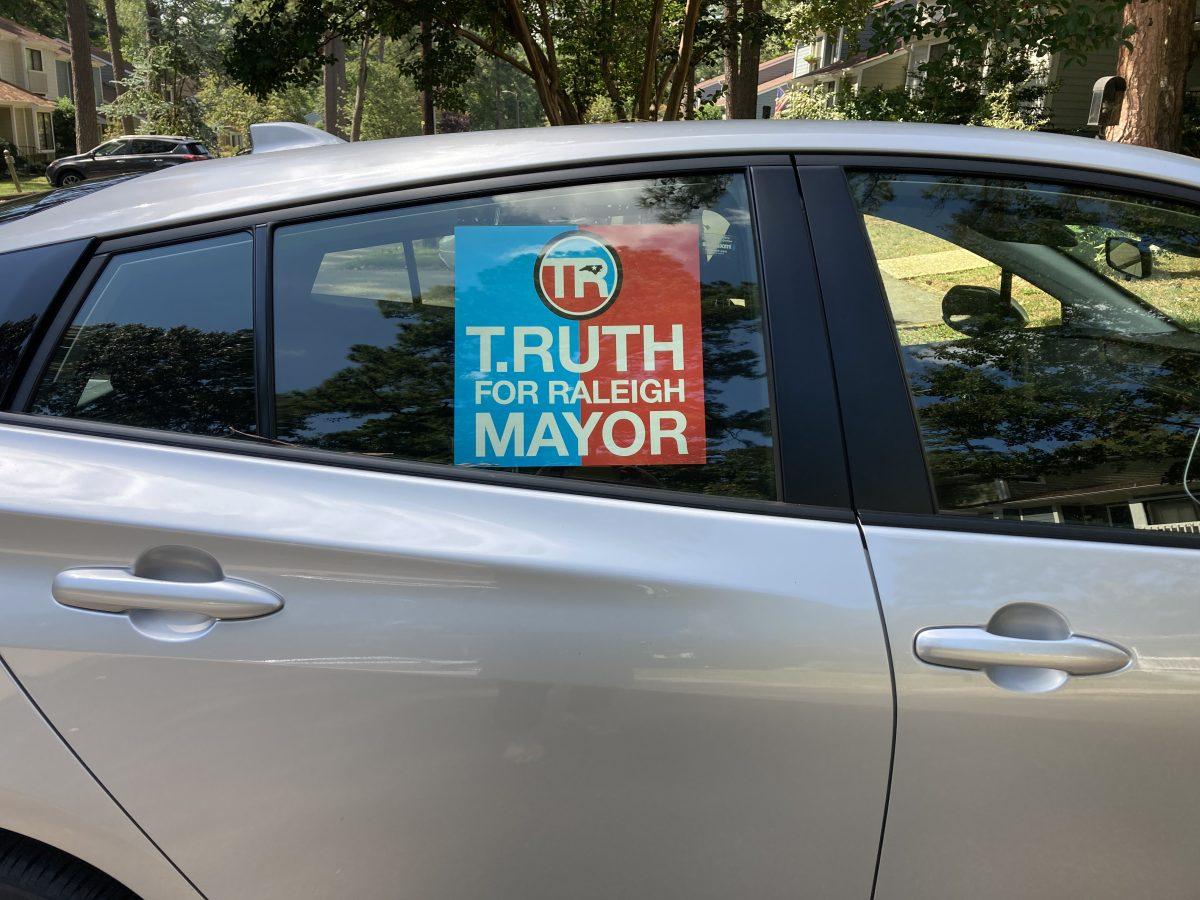Dr. Terrance Ruth, an assistant professor in NC State’s School of Social Work department and Africana studies program, will be on the ballot for mayor of Raleigh this November. Ruth is looking to use his experience as a teacher to be a student of the community and create policy best for the city of Raleigh.
Ruth announced his candidacy in January 2021 for an election meant to be held in November of the same year. As a result of the release of the 2020 U.S. Census and redistricting, hundreds of local city elections across the state were delayed until 2022, with Raleigh also adopting a plan to hold all future elections in even years.
He decided to run in response to calls from the community for leadership that prioritized social engagement experience over politics.
“When I announced, there was this rumbling in the country around racial equity, around racial justice, around safety, a pandemic, and then you actually had civil unrest across the country, we had one right downtown in our city and the city of Raleigh, and I believe in that moment, people began to build an appetite for a different type of leadership,” Ruth said.
The race pits Ruth against two other democrats, current Mayor Mary-Ann Baldwin and nonprofit President DaQuanta Copeland. Over the summer, Ruth received an endorsement from the Wake County Democratic Party, a surprising break from the incumbent mayor.
Before instructing at NC State, Ruth was a teacher and principal in public schools. He was the executive director of the NAACP at the state level and served as the national community director of the nonprofit organization Forward Cities. As a researcher, he tracked and evaluated policy with NC State’s Friday Institution.
“I’ve had a broad experience across policy, research, community investment, community leadership, that I think is directly needed in our city at this moment,” Ruth said.
The social work instructor is building a platform on community involvement and constructing trust with local government. Ruth said his experience as a researcher in the Triangle will help him accomplish this.
“I think that we have an opportunity here to really not just celebrate this idea of being a tech triangle, but to actually use the tech so that we maximize engagement and feedback from all residents,” Ruth said. “So that we know that there’s a representative sample that we’re listening to in our city, so that we are actually reflecting our policy based on what we hear from a representative population. … As a researcher, the weight of finding a generalized sample is on me. It’s on me to go and make sure that I’m hearing from a right-sized audience that will represent the larger population.”
Baldwin has drawn criticism for her ties to developers and lack of direct engagement with the community which culminated in a recall effort last year. Ruth said he disapproves of the city council’s removal of platforms bridging dialogue with the community. In 2020, the council abruptly dismantled Raleigh’s citizen advisory councils.
“For two years, we’ve been in the absence of a community engagement platform,” Ruth said. “If we’re going to make policy decisions that are actually reflective of the needs of people in Raleigh, we have to hear from the people in Raleigh.”
Barbara Zelter, a former professor in NC State’s School of Social Work and advocate of Women for TRUTH, said Ruth will bring the change the community of Raleigh is looking for.
“[Raleigh politicians] have been kind of in the pocket of developers: a lot of big buildings, a lot of gentrification, which is a huge issue for regular middle-class, working-class people,” Zelter said. “Dr. Ruth is absolutely not in the pocket of developers. He wants whatever happens in Raleigh to be a conversation of all the people that will be affected.”
According to Allyson Mattingly, a third-year studying social work, local North Carolina politicians have come up short on their promises in recent years.
“I do think there needs to be some kind of change,” Mattingly said. “I’ve seen a lot of politicians advertise how much social change they’re going to do and how much they’re going to help Raleigh, and North Carolina, and how they’re going to do all this big stuff, and then it just never gets done.”
Mattingly said she believes Ruth’s background in social work makes him a more compelling candidate that can transform talk into action.
“I think having Terrance run for office is just really fantastic because I think he has the passion to create or to want to create a better change,” Mattingly said.
Ruth, who has continued teaching classes throughout his campaign this fall, credits his background in social work to supporting his transition to politics.
“For social work, there’s an attraction to being on the forefront of some of the more difficult issues in our nation,” Ruth said. “I think that social work has allowed me to have a level of empathy for people who either don’t have a voice or have a voice that’s ignored that I don’t see often in political figures.”
The NC State School of Social Work is a nationally ranked program, but may be prone to being overlooked, according to Mattingly. She’s hoping Ruth’s bid for mayor will change this.
“I think it’s a huge deal,” Mattingly said. “A lot of people — like students at NC State — don’t even know that the School [of] Social Work exists. If I tell someone I’m a social work major, they say ‘What’s that?’ But if our mayor works at the social work school at North Carolina State University, it’s going to really promote who we are, what we do and the importance of what we do, and I think it’ll really just bring a lot of positive attention towards the school.”













